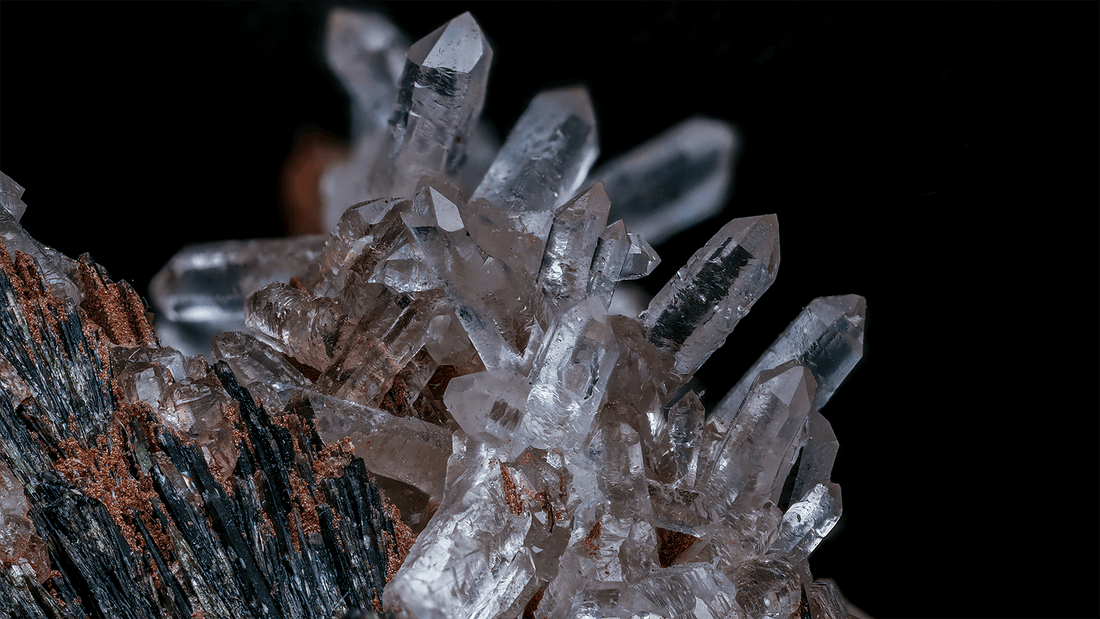
Everything You Need to Know About Watch Crystals
Watch crystals are a crucial part of any timepiece, protecting the face and ensuring the accuracy of the time. In this blog, we'll dive into the different types of watch crystals, the materials they're made from, and how to care for them.
If you're a watch enthusiast, you know that the crystal is a crucial part of any timepiece. It protects the face of the watch and can affect the overall durability and accuracy of the time. But with so many different types of watch crystals on the market, it can be tough to know which one is right for you. In this blog, we'll dive into the different types of watch crystals, the materials they're made from, and how to care for them.
Types of Watch Crystals
Watch crystals come in a variety of types, each with its own unique characteristics and benefits. Here are a few of the most common types of watch crystals:
Acrylic
Acrylic crystals, also known as "Plexiglas," are made from a type of plastic and are the least expensive option on the market. This material is often found on low-quality watches. Acrylic watch crystals scratch-resistant, but not as durable as other types of crystals. Acrylic crystals are a good choice for casual, everyday watches that don't need to withstand rough conditions.
Mineral
Mineral crystals are made from a type of glass that is heated and then cooled rapidly, creating a hard, scratch-resistant surface. They are more durable than acrylic crystals and are a good choice for everyday wear. However, they are still prone to scratching and are not as durable or glare-resistant as sapphire crystals.
Sapphire
Sapphire crystals, found on all of pOrtahl's watches, are often made from synthetic sapphire, which is one of the hardest materials on earth. As a result, they are extremely durable and scratch-resistant. They also offer the greatest clarity. Sapphire crystals may be the most expensive option, but they are well worth the investment for luxury watches or watches that will be subjected to rough conditions.
How to Care for Your Watch Crystal
Regardless of the type of crystal your watch has, it's important to take good care of it to ensure its longevity. Here are a few tips for caring for your watch crystal:
- Avoid exposing your watch to extreme temperatures, as this can cause the crystal to crack or shatter.
- Avoid wearing your watch while participating in activities that could cause it to sustain impacts, such as sports or heavy manual labor.
- Avoid exposing your watch to harsh chemicals, such as cleaning products or perfume.
- Clean your watch regularly with a soft, dry cloth to remove dirt and grime.
If your watch crystal does become scratched or damaged, it's important to have it repaired or replaced as soon as possible to ensure the accuracy of the time and the overall integrity of the watch. Many watch repair shops offer crystal replacement services, or you can contact the manufacturer for assistance.
Conclusion
Watch crystals play a vital role in protecting the face of your timepiece and ensuring its accuracy. With so many different types on the market, it's important to choose the right one for your needs and lifestyle. Acrylic crystals are a budget-friendly option for casual, everyday wear, while mineral crystals offer a bit more durability. Sapphire crystals are the most expensive, but also the most durable, making them the best choice for luxury watches or watches that will be subjected to rough conditions.
Regardless of the type of crystal your watch has, it's important to take good care of it by avoiding extreme temperatures, impacts, and harsh chemicals, and cleaning it regularly with a soft, dry cloth. If your watch crystal becomes damaged, be sure to have it repaired or replaced as soon as possible to ensure the accuracy and integrity of your timepiece.
Frequently Asked Questions
How do I know which type of watch crystal is right for me?
The best type of watch crystal for you will depend on your needs and budget. If you're looking for a budget-friendly option for casual, everyday wear, acrylic crystals may be a good choice. If you want a bit more durability, mineral crystals may be a better fit. If you're willing to invest in a luxury watch or need a crystal that can withstand rough conditions, sapphire crystals may be the best choice for you.
Can I replace the crystal on my watch myself?
It's generally not recommended to try and replace the crystal on your watch yourself, as it requires specialized tools and training. If your watch crystal becomes damaged, it's best to have it repaired or replaced by a professional watch repair shop or the manufacturer. This will ensure that the repair is done correctly and won't cause any further damage to your watch.
Can I polish scratches out of my watch crystal?
It's generally not possible to polish scratches out of a watch crystal. If your watch crystal becomes scratched, it's best to have it repaired or replaced by a professional. Trying to polish the scratches out yourself may cause further damage to the crystal and could affect the accuracy of the time.
